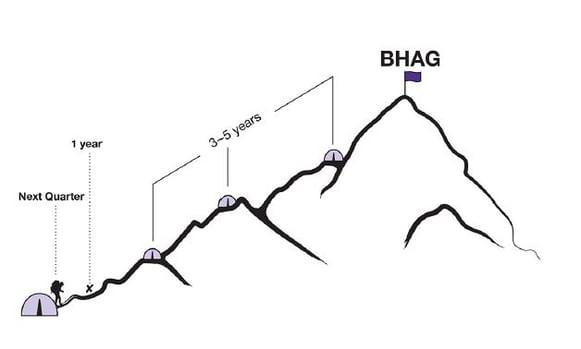Building a Strong Culture
Culture describes how people come together as a group on a day‐to‐day basis. It is not about making people feel good per se, it’s about enabling the mission with the behaviors and values that serve that purpose.
If you want to create a strong culture, you have to drive a more consistent set of behaviors, norms, and values and most importantly you have to focus on consistent and clearly defined consequences, day in and day out.
You know you have created a good culture when most of the organization is willing to defend and promote those values and call out deviations on a day‐to‐day basis.
21
145 reads
CURATED FROM
IDEAS CURATED BY
Software engineer by 🌞 and sleepyhead by 🌑. Software architecture. Distributed systems. Personal productivity. Cats.
Frank Slootman explains in his book how to lead for hypergrowth by raising the expectations, increasing urgency and elevating intensity.
“
The idea is part of this collection:
Learn more about books with this collection
How to set clear objectives
How to follow up after a meeting
How to manage time effectively
Related collections
Similar ideas to Building a Strong Culture
Cognitive culture vs emotional culture
- When people talk about corporate culture, they’re typically referring to cognitive culture: the shared intellectual values, norms, artifacts, and assumptions that serve as a guide for the group to thrive.
- The other critical part is what we call the group’s...
A Strong Strategic Vision For Strong Scaling
By establishing core values, you give your organization comprehensible guidelines for every decision. These are the norms of a company’s culture and should be stated in a succinct, realistic sentence. eg: “Practice what we preach.”
You should also make your company’s missio...
Creating a company culture that grows with you
Culture is a living organism that can be stronger at 1,000 employees than it was at a few, provided it has the right ingredients and foundation.
A good way to create a company culture that stays fresh and relevant through growth is to create the foundation with a shared mi...
Read & Learn
20x Faster
without
deepstash
with
deepstash
with
deepstash
Personalized microlearning
—
100+ Learning Journeys
—
Access to 200,000+ ideas
—
Access to the mobile app
—
Unlimited idea saving
—
—
Unlimited history
—
—
Unlimited listening to ideas
—
—
Downloading & offline access
—
—
Supercharge your mind with one idea per day
Enter your email and spend 1 minute every day to learn something new.
I agree to receive email updates

